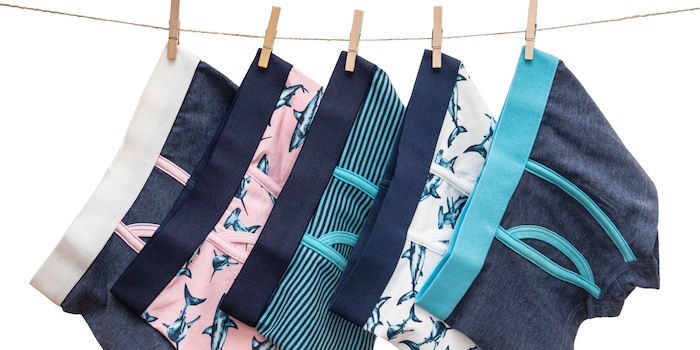
Behind the scenes
Galaxus survey: 1 in 2 people washes their dishes with germ-ridden sponges
by Jana Pense

Since the pandemic, we’ve been spending much more time at home, with sweatpants becoming our working-from-home dress code and our beds becoming our living rooms. So what does this mean for our personal hygiene? A representative survey commissioned by Galaxus has revealed that 1 in 3 people in Switzerland wash their bed sheets too infrequently. Not only that, but a quarter of men don’t change their underwear daily.
From hand-sanitising on the bus, to washing our hands in time to the happy birthday song, hygiene guidelines have been our constant companions in public spaces over the last three years. Cutting down on socialising, however, has caused us to neglect our cleaning and washing routines in private too. On the back of the trend, Oxford Languages dubbed «goblin mode» Word of the Year for 2022.
In a nutshell, going goblin mode means holing up at home, being lazy and sloppy, and disregarding social norms or expectations. So how clean are the Swiss in their own homes? Market research institute GfK polled 1,000 people aged 15–74 on Galaxus’ behalf, selecting a representative sample of the German- and French-speaking population.
When it comes to their underwear, the Swiss seem pretty hygienic at first glance; 83 per cent of respondents change theirs at least once a day as recommended (linked page in German). A second look at the stats reveals that almost a quarter of men do it less frequently. As for Swiss women, only 1 in 10 are in goblin mode. However, women are also at an increased risk of infection if they don’t change their underpants daily.
A glance at the data by age group reveals Switzerland’s 50 to 74-year-olds to be most likely to wear dirty underpants, followed by 15 to 29-year-olds. Many underwear goblins can be found among those with a lower level of education. As education rates increase, underwear hygiene improves.
Famously, when you’ve made your bed, you’ve got to lie in it. And apparently, a lot of people in Switzerland have made theirs pretty pongy. It’s recommended (linked site in German) we change our sheets every two weeks. However, a third of respondents admitted to changing their bedding less often. This makes the Switzerland the cleanest of the DACH countries. People in Switzerland seem to get more hygienic with age, with the country’s 50 to 74-year-olds proving to be the cleanest. Well, bedder late than never!
The number of people living in one household is also a decisive factor in Swiss bed-cleanliness. People living in flatshares and family homes change their bed linen less frequently than those in single and two-person households do. This is probably down to the effort involved. If you’ve only got to make up one bed, you’re likely to do so more regularly than someone who’s got the rest of the family’s beds to take care of.
Healthy dental hygiene involves replacing your toothbrush regularly. Dentists recommend doing so every three months (linked page in German). Most goblins in this regard can be found among 15–29 year-olds, with a rate of around 18 per cent. Dental hygiene improves continuously with age, perhaps because younger people have to watch their spending more. Their budgets may occasionally lack the cash for new toothbrushes. In addition, employed people replace their toothbrushes more frequently than unemployed people. A glance at the country comparison reveals Switzerland and Austria perform significantly worse than their German neighbours. In Switzerland, there are almost twice as many goblins as in Germany, with a rate of almost 14 per cent.
In asking people about personal hygiene, we’d have been remiss not to include showering habits. It’s recommended you shower or bathe two to three times a week (linked page in German). Compared to the previous categories, there are the fewest goblins in this area. Showering or bathing regularly seems to be a high priority in Switzerland (as is the case in Germany and Austria) – even more so than having clean underwear each day.
What’s your personal hygiene routine? Do you live in goblin mode? Or is everything at your place spotless? When do you think is especially important to keep clean? Join the discussion in the comments!
The survey was conducted between 26 December 2022 and 4 January 2023.
News about features in our shop, information from marketing and logistics, and much more.
Show all